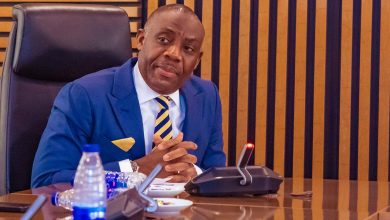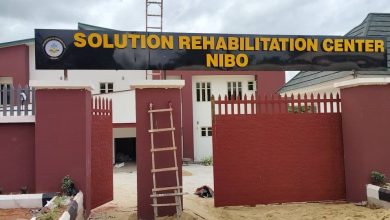The Impact of Economic Reforms on Nigerians’ Cost of Living, Inflation, and Poverty
Over the past year, Nigeria’s economic landscape has undergone sweeping reforms, some of the boldest in recent memory. From fuel subsidy removal to exchange-rate unification and fiscal tightening, the government has pursued a path meant to correct structural distortions, attract foreign investment, and stabilize public finances. Yet, as policymakers hail these measures as necessary for long-term sustainability, millions of Nigerians are grappling with an immediate and painful reality: soaring costs, shrinking incomes, and deepening poverty.
The removal of the petrol subsidy in mid-2023, while economically rational, triggered a chain reaction that continues to define daily life. Transport fares doubled or tripled overnight, pushing up the prices of food and other essentials that depend on road haulage. For an economy heavily reliant on road transport and diesel-powered generators, the ripple effect was inevitable. A measure designed to save government expenditure of over ₦4 trillion annually ended up shifting the burden squarely onto citizens with little cushioning.
Simultaneously, the Central Bank’s move to unify exchange rates, a long-demanded reform by investors, sought to eliminate arbitrage and restore credibility to Nigeria’s foreign-exchange market. However, the naira’s sharp depreciation that followed has made imports, from raw materials to medicines, significantly costlier. The World Bank’s 2025 Nigeria Development Update estimated inflation at nearly 30 percent, with food inflation hovering above 35 percent. The prices of staples like rice, garri, and yam have tripled in many states. For families earning stagnant wages, this has translated into severe erosion of purchasing power.
Inflation, in this context, is not an abstract macroeconomic number, it is a lived experience. It is the mother who now buys half a bag of rice instead of one, the young graduate who skips breakfast to afford transport, the small trader whose daily profit barely covers restocking. Every sector has felt the squeeze, from agriculture to manufacturing, as the cost of inputs and energy continues to rise. Even the public sector, where salaries have barely moved, faces growing unrest among workers seeking cost-of-living adjustments.
The government has made some attempts to ease the pain, conditional cash transfers, wage awards, student loans, and promises of mass transit schemes. Yet these measures remain fragmented, poorly targeted, and insufficiently funded. In a country where over 133 million people are estimated by the National Bureau of Statistics to be living in multidimensional poverty, social protection cannot be treated as an afterthought. Cash handouts that reach only a fraction of the needy, or short-term wage support that excludes informal workers, fail to address the scale of deprivation.
Nigeria’s social protection architecture remains weak and overly politicized. Previous programmes such as N-Power, TraderMoni, and the Social Investment Program were riddled with inconsistencies and lacked sustainability. What the country needs now is a comprehensive, data-driven system that combines income support with access to healthcare, affordable housing, and education. Social registers must be updated transparently to identify genuine beneficiaries, not recycled lists of party loyalists or beneficiaries of political patronage.
Beyond social assistance, structural policies are equally urgent. Food security, for instance, cannot be achieved without fixing the insecurity that keeps farmers away from their fields. Inflation will persist if local production continues to decline. Nigeria imports too much of what it consumes and exports too little of what it produces. Fiscal discipline will mean little if domestic productivity remains stagnant. The government’s emphasis on fiscal reform must therefore go hand-in-hand with tangible investment in the real economy, agriculture, power, manufacturing, and digital infrastructure.
There is also the question of trust. Many Nigerians accept that reforms are necessary but doubt the government’s commitment to accountability. When citizens see political office holders increasing allowances or traveling in convoys while ordinary people tighten their belts, faith in reform evaporates. The success of any economic adjustment depends not only on technical soundness but also on perceived fairness. Citizens must believe that the sacrifices demanded of them are shared equally across society.
The current hardship is not merely cyclical; it is structural. Inflation has entrenched itself into pricing behavior, transporters, landlords, and traders adjust prices pre-emptively, expecting costs to keep rising. The informal sector, which employs most Nigerians, lacks buffers such as credit, insurance, or savings. The longer this continues, the greater the risk of social unrest and economic stagnation.
It is, therefore, time for the government to pivot from crisis management to people-centered reform. This means re-evaluating the sequencing and pace of policies, expanding targeted subsidies for the most vulnerable, and investing aggressively in food production and energy access. It means reducing wastage in public spending while channeling savings from the removed fuel subsidy into visible community projects, rural roads, health centers, and schools that citizens can see and benefit from.
Equally, fiscal and monetary authorities must work in sync. The Central Bank’s interest-rate hikes may curb inflation theoretically, but they also make credit inaccessible for small businesses, worsening unemployment. Coordination between fiscal and monetary policy should prioritize productive sectors that generate jobs and reduce import dependence.
Ultimately, reform should not be a punishment; it should be a pathway to shared prosperity. Nigeria’s economy cannot be rebuilt on austerity alone, it requires compassion, transparency, and inclusion. The government must recognize that macroeconomic stability without human security is an illusion. The true measure of success will not be the applause of international lenders or rising foreign-reserve figures, but whether ordinary Nigerians can feed their families, pay rent, and live with dignity.
In the end, the challenge before policymakers is clear: to design reforms that work for markets and for people. Economic transformation must not come at the expense of social collapse. The path to a stronger Nigeria lies not only in balancing budgets but in balancing lives.



